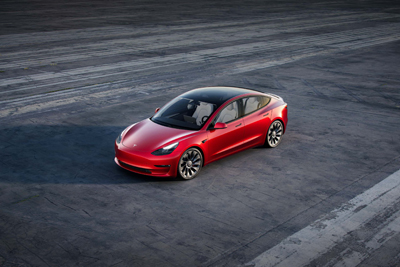Tesla started a price war in January, and as it tries to keep its costs as optimized as possible, some of its suppliers are preparing to feel pressure.
The concerns were related by industry officials who work with Tesla and its suppliers.
Comments from executives during the fourth quarter and full-year 2022 earnings call suggested Tesla is currently focused on its costs. Tesla CFO Zach Kirkhorn said the company was “attacking every area of cost,” and CEO Elon Musk said a recession, if one does happen, could lead to “meaningful decreases in almost all of our input costs.”
Dan Sharkey, co-founder of Brooks Wilkins Sharkey & Turco and a lawyer who represents automotive suppliers, said aggressive price cuts are never good news for suppliers.
“It is never good for suppliers when (automakers) cut vehicle prices because that pressure rolls downhill. I never like it, because I know eventually they’re going to try to get it out of one of us,” Sharkey said. “My message is, there’s not going to be any room there. Many suppliers are financially struggling."
While major Tesla suppliers such as Panasonic, LG Energy Solution, CATL and IDRA are typically cautious about statements concerning their relationship with the EV maker, a Tesla supplier who opted to remain anonymous said the company focused more on delivery over pricing during the pandemic.
This meant Tesla was willing to pay a premium to acquire parts at a faster pace. Following the Q4 and FY 2022 earnings call, the Tesla supplier is reportedly worried this trend will change. Tesla has not issued a statement about the matter as of writing.
Carmakers saw significant margins during the pandemic. But some suppliers reportedly were not able to fully pass along their higher costs, resulting in lower margins. Bain, a consultancy firm, estimated in Q3 2022, the profit margins of automakers were almost 3% higher than suppliers. Suppliers will likely experience even more pressure as carmakers lower their prices.
Some Tesla suppliers are already experiencing a lot of headwinds. Gissing North America, a Michigan-based company that produces acoustic systems and headliners for car ceilings, counted Tesla as its largest customer. Yet last year, the company filed for bankruptcy due to high commodity prices and labor costs. Steven Wybo, chief restructuring officer, said he does not see things getting easier anytime soon.
“There’s certain things that I think will ease, but there’s this labor component that’s built in to the price of everything, and I don’t see that easing any time soon and potentially never,” Wybo said.
Industry officials have said Tesla might aim to reassure its suppliers by highlighting the potential losses from lower prices will be more than made up for in higher volumes of orders. This would benefit Tesla and its suppliers, especially considering the EV maker’s efforts to ramp to 20 million vehicles per year by the end of the decade.










Abby Andrews